Future of Governance International Conference 2025: The Future of Governance Is Being Written in Bucharest
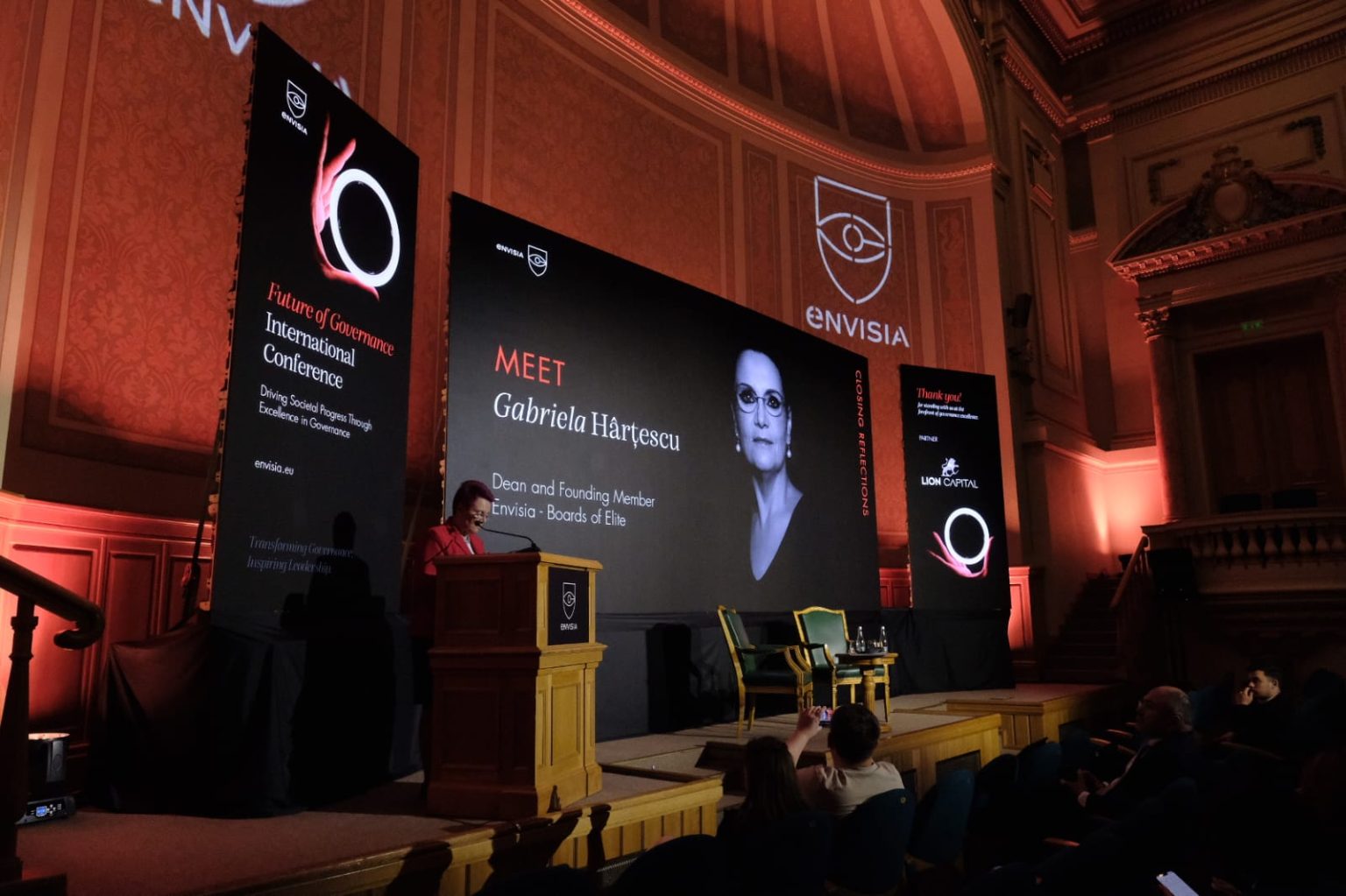
Now in its fourth edition, the Future of Governance International Conference 2025 brought together influential voices from the academic, economic, and public sectors—both nationally and internationally—to explore concrete ways in which corporate governance can act as a transformative force for society in the context of global change.
Held on May 20 at the “Carol I” Central University Library in Bucharest, the event gathered over 150 participants, including leaders and experts from major Romanian companies and institutions, further consolidating Romania’s role as a regional hub for dialogue on the future of governance.
LORENZO FIORAMONTI KEYNOTE SPEECH: AN ECONOMY OF WELLBEING, NOT GROWTH
The conference opened with a keynote by Lorenzo Fioramonti, former Italian Minister of Education, member of the Club of Rome, and Academic Director of NATIVA Campus. In his address, Fioramonti challenged the conventional notion of GDP as the sole indicator of progress, advocating instead for policies and practices centered on social wellbeing, equity, and sustainability.
He laid out the foundations of a Wellbeing Economy and stressed the need for systemic change, where the purpose of governance is redefined in relation to people and the planet.
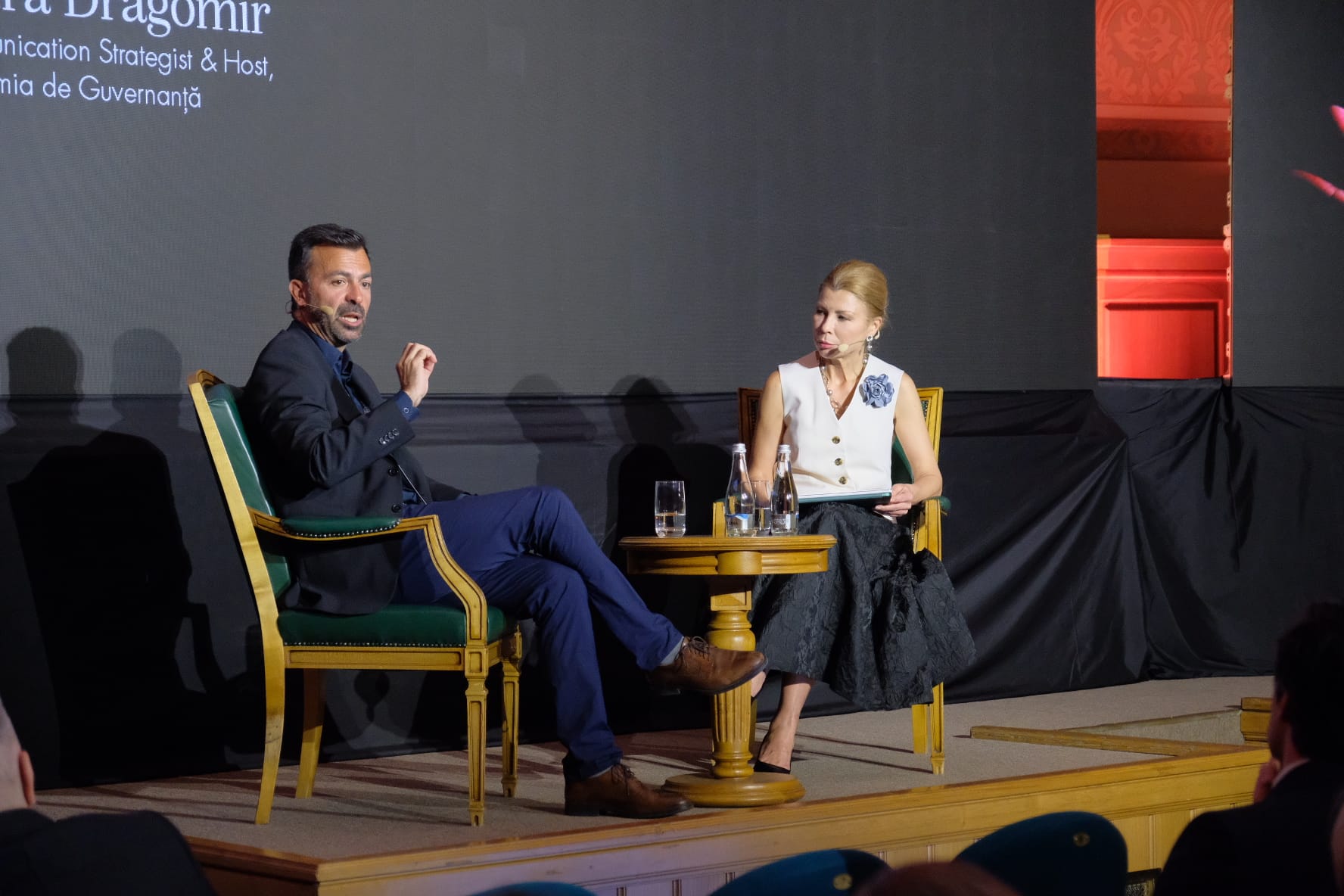
FIVE FIRESIDE CHATS THAT SPARKED THE FUTURE OF GOVERNANCE
Leadership Longevity and the Future of Work
In a session focused on adapting governance to new demographic realities, Shruti Singh (Senior Economist, OECD), Alina Popa (CFO, OMV Petrom), and Flavia Popa (Secretary General, BRD – Groupe Société Générale) shared insights on how organizations can support sustainable leadership in an evolving workforce.
OECD presented data on the accelerating aging of the workforce, highlighting that multigenerational workforces are not just inevitable, but a strategic advantage. The panel discussed the importance of continuous learning, adaptability, and retaining senior talent as valuable contributors.
AI and Blockchain in Governance
This session highlighted the impact of emerging technologies and featured Eduard Goean (VP of New Business Partnerships, Therme Group & Visiting Professor, University of Surrey) and Flavia Kenyon (Barrister, The 36 Group, UK & Founder of Root Series). The two explored how technologies like blockchain, AI, and smart contracts are laying the groundwork for new governance models. From decentralized autonomous organizations (DAOs) to AI-based decision systems, the panel illustrated how these tools can bring greater transparency, accountability, and co-creation into both public and private governance structures.
Goean highlighted practical applications of blockchain in tourism and sustainability, such as tokenized green investments and carbon footprint tracking tools. Kenyon emphasized the legal and regulatory challenges of decentralized governance and called for innovation rooted in the rule of law.
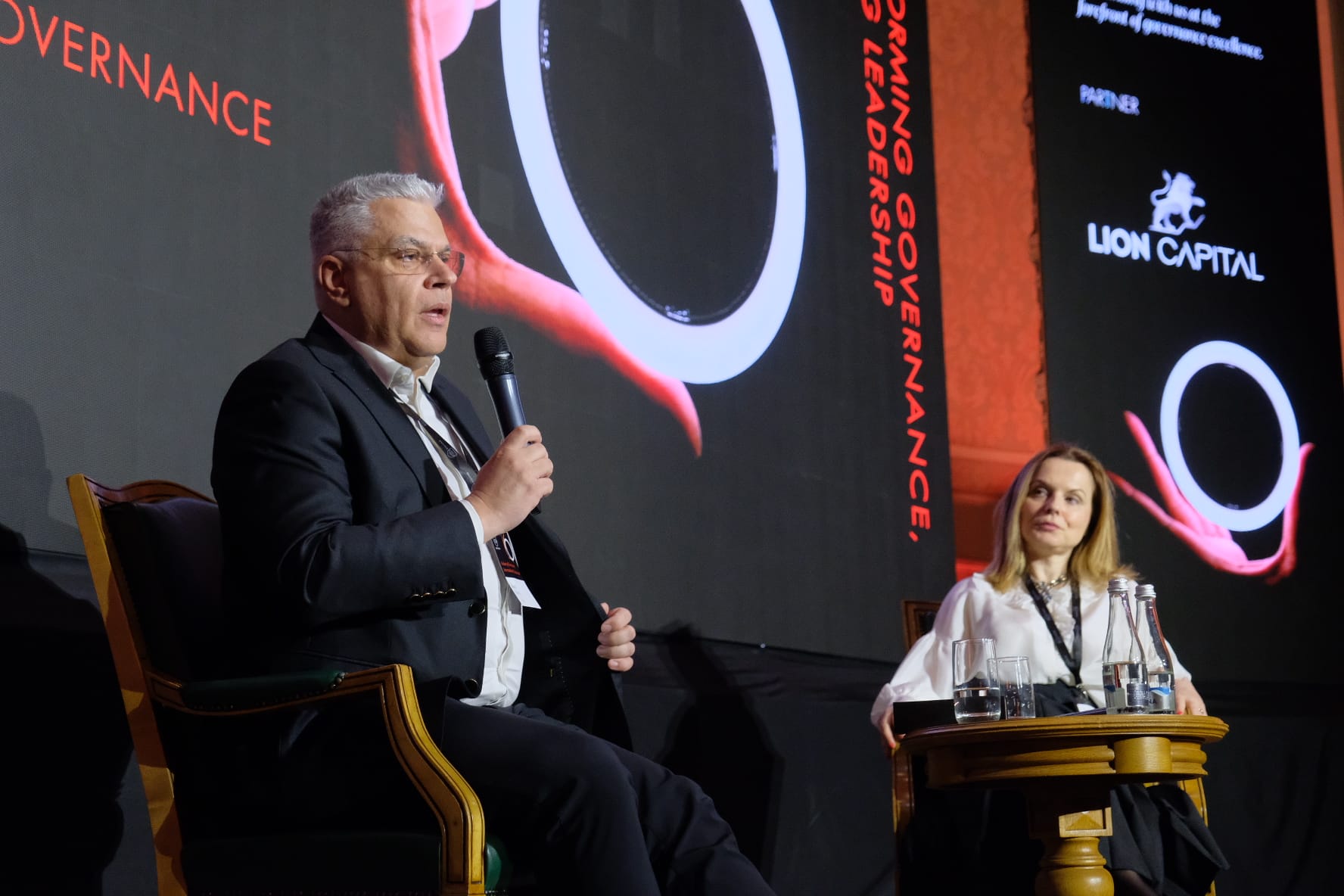
Good Governance and Civil Society
This session brought together Costel Negricea (Rector, Romanian-American University), Nada Kakabadse (Professor of Policy, Governance & Ethics, Henley Business School), and Mădălina Marcu (Development Director, ARC Romania) for a critical discussion on the role of civil society in rebuilding institutional trust.
Against the backdrop of eroding public trust, the panel emphasized that civil society must not be treated as a bystander but as a legitimate and capable actor in the decision-making process. Nada Kakabadse discussed international trends in ethical governance, while Mădălina Marcu presented examples from ARC’s work in driving systemic change through collaboration with businesses and institutions. Negricea highlighted the role of universities as neutral spaces for dialogue and bridges between sectors.
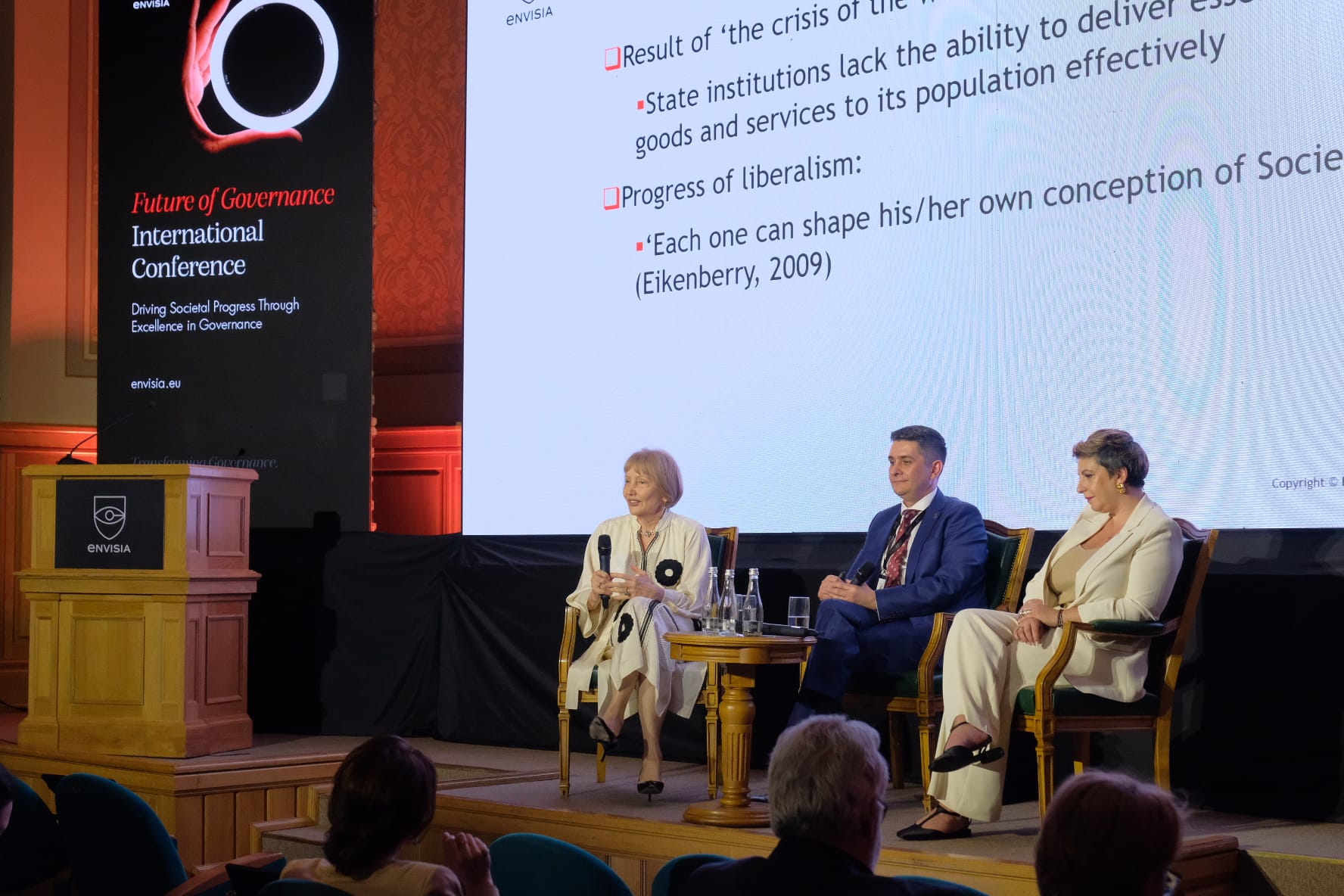
Benefit Corporations and the New Corporate Governance Model
This panel featured Juan Diego Mujica Filippi (Impact Law & Governance Lead, NATIVA), Lorenzo Fioramonti (Academic Director, NATIVA Campus), and moderator Andrew Kakabadse (Professor of Governance and Leadership, Henley Business School & Chair, Envisia – Boards of Elite).
Juan Diego clarified the difference between B Corp certification and the Benefit Corporation legal model, emphasizing structural changes that embed purpose, stakeholder responsibility, and public transparency into corporate governance.
Fioramonti argued that these models foster trust and innovation, representing a shift toward a regenerative capitalism that balances profit with the public good.
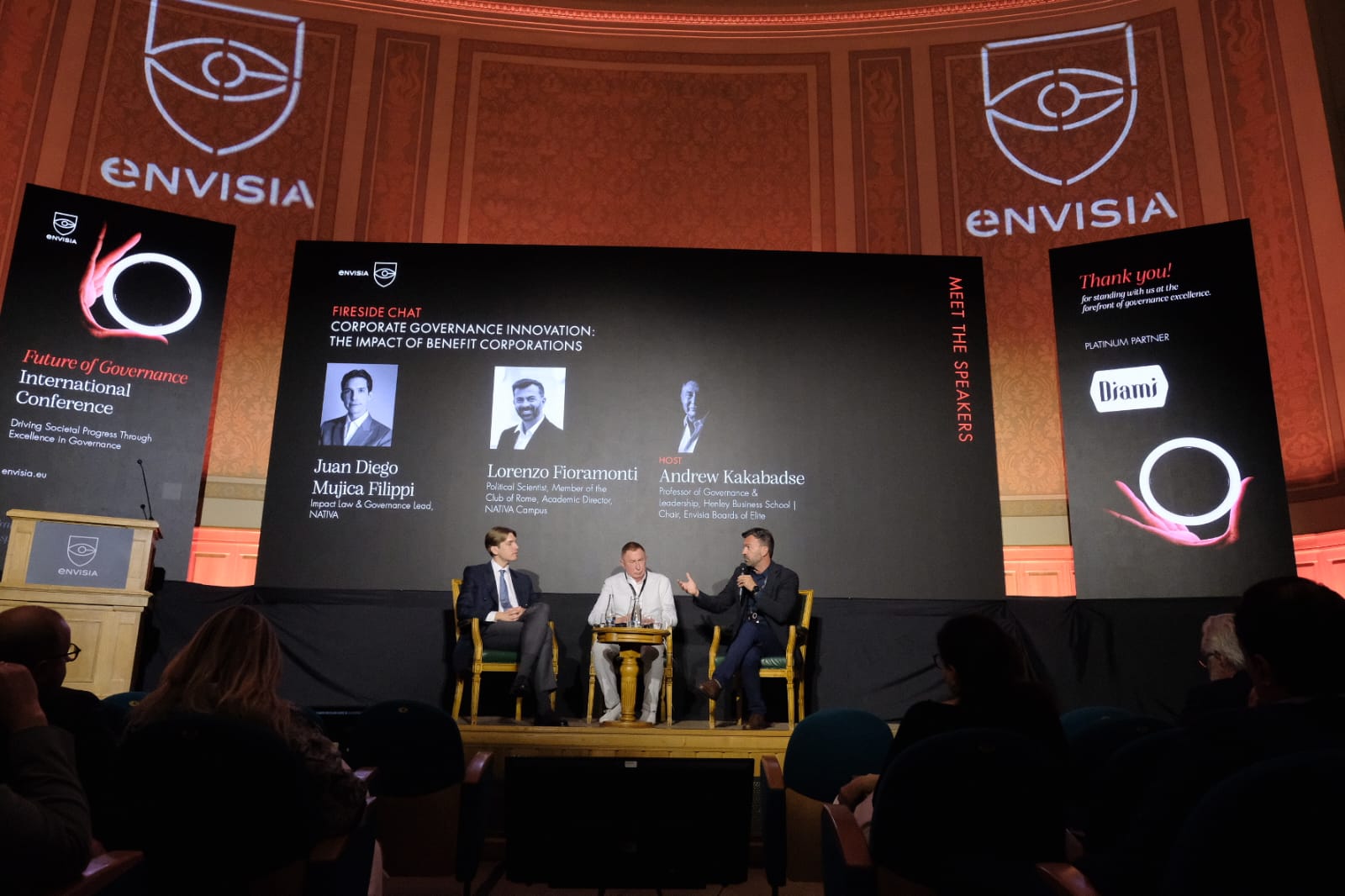
The Future of Governance and Romania: Macroeconomic and Geopolitical Context
In the final panel, Alexandru Nazare (Chair, PanEuropa Romania & Board Member, National Bank of Romania) and Ionuț Dumitru (Chief Economist, Raiffeisen Bank Romania) offered a strategic view of Romania’s position in a turbulent economic and geopolitical environment.
Dumitru outlined Romania’s major macroeconomic imbalances: slowing growth, high inflation, and twin deficits (fiscal and current account), stressing the urgent need for fiscal consolidation and structural reform, including improved tax collection — currently the lowest in the EU.
Nazare emphasized Romania’s geopolitical role within the EU and NATO, advocating for greater institutional resilience, investment attraction, and effective use of EU green and digital transition funding. The panel concluded with actionable insights for regaining investor confidence and ensuring long-term development through sound economic governance.
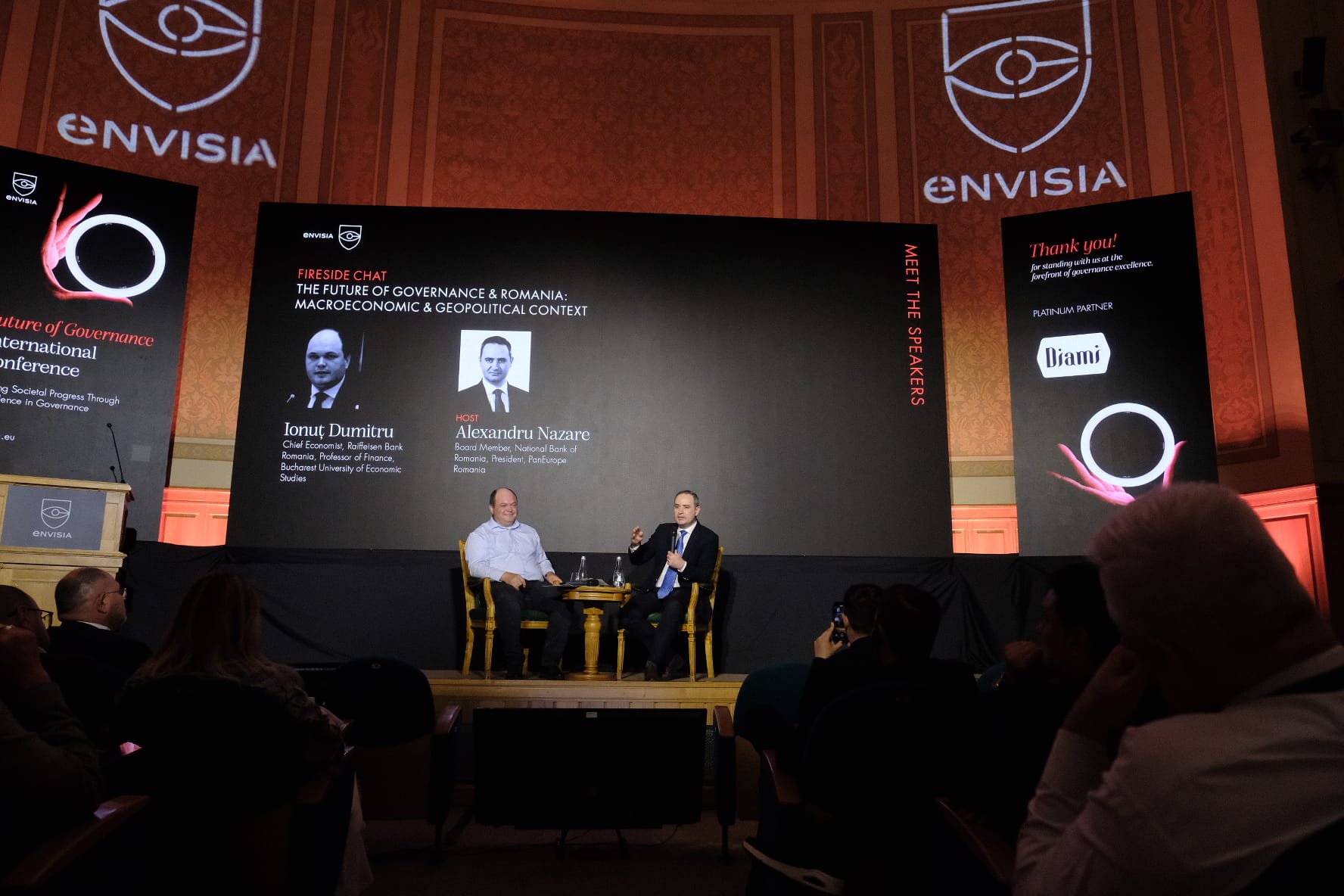
The Future of Governance Conference is a unique platform connecting political leaders, corporate decision-makers, academics, and changemakers committed to sustainable leadership and systems innovation. The full agenda and list of speakers, HERE.
This event was made possible with the support of our partners and sponsors:
- Institutional Partners: General Secretariat of the Government, European Commission, Bucharest Stock Exchange, CISI, Romanian-American University, PanEuropa Romania, IASE – International Association for Sustainable Economy, AmCham, BRCC, CCIFER, ACCA, ASRO, Romanian Business Leaders, BCU
- Platinum Partners: BRD Groupe Société Générale, Diami, Raiffeisen Bank
- Corporate Partners: Ursus Breweries, Moore, SAI – Muntenia Invest, Lion Capital, Green Group, Up Romania, Enache, Pirtea & Asociații, Interact, ONV Law, Future Station, Public Affairs Solutions, Ana Hotels, Black Cab, Serve
- Media Partners: ro, Financial Intelligence, Nine O’Clock
Recommended articles
Leadership, Boardroom Dynamics & Crisis Response
Leadership, Boardroom Dynamics & Crisis Response
Governance & Board Effectiveness
Future of Boards & NED Careers
Future of Boards & NED Careers
ESG & Risk Oversight
Leadership, Boardroom Dynamics & Crisis Response
Governance & Board Effectiveness
Governance & Board Effectiveness
Leadership, Boardroom Dynamics & Crisis Response
Future of Boards & NED Careers
Governance & Board Effectiveness
Governance & Board Effectiveness
Governance & Board Effectiveness
Governance & Board Effectiveness
Future of Boards & NED Careers
Leadership, Boardroom Dynamics & Crisis Response
Future of Boards & NED Careers
 BACK TO ARTICLES
BACK TO ARTICLES
 Facebook
Facebook Linkedin
Linkedin
